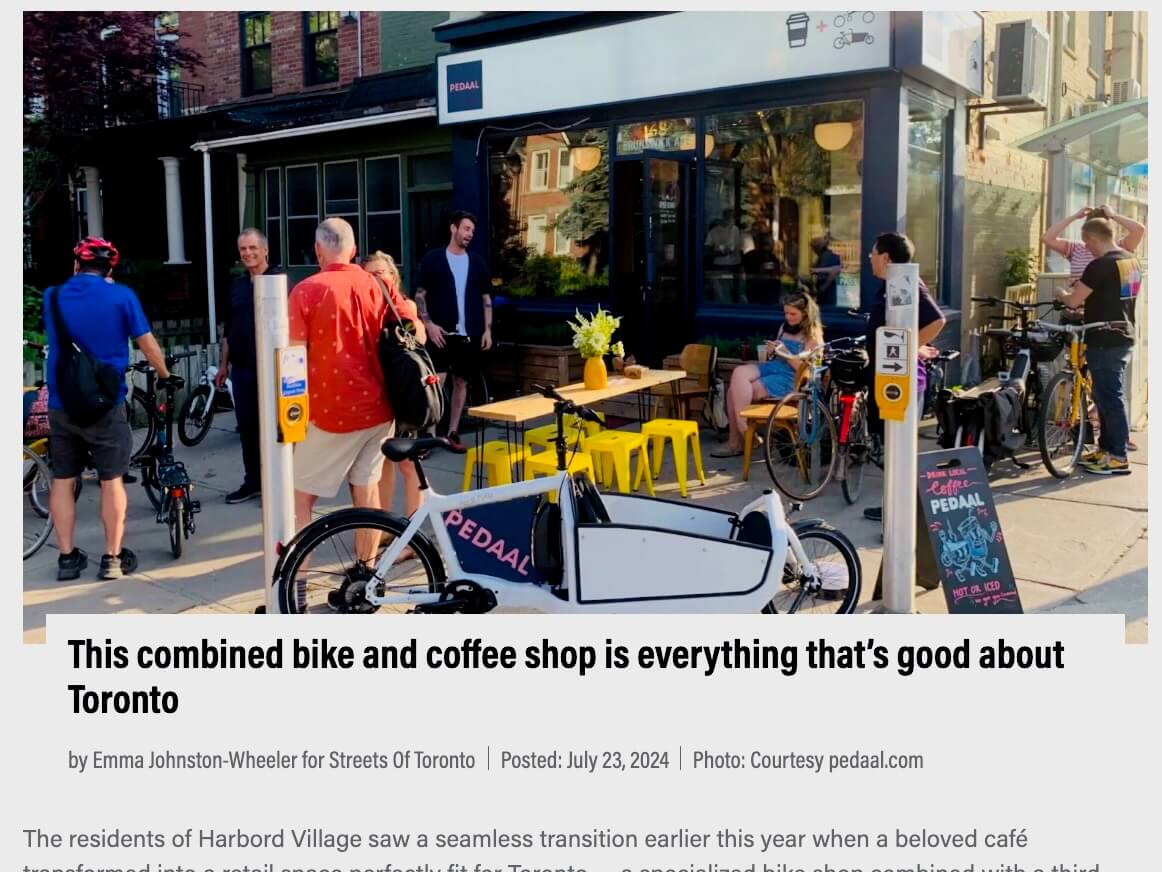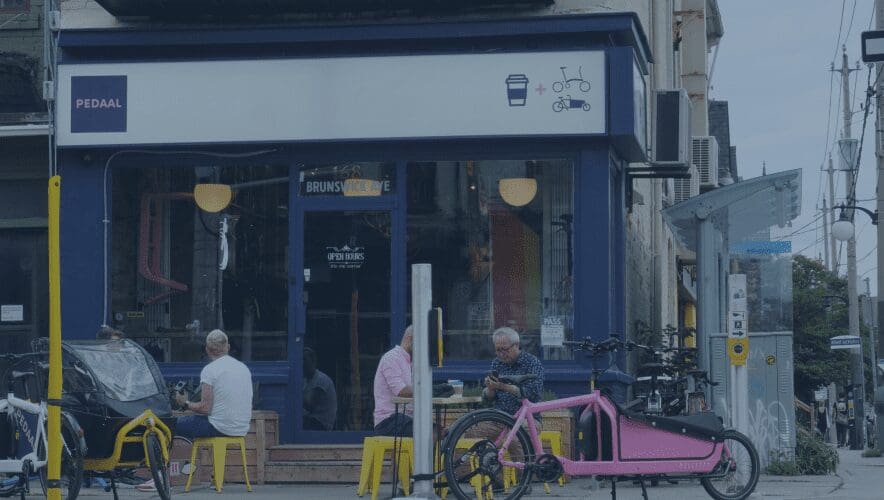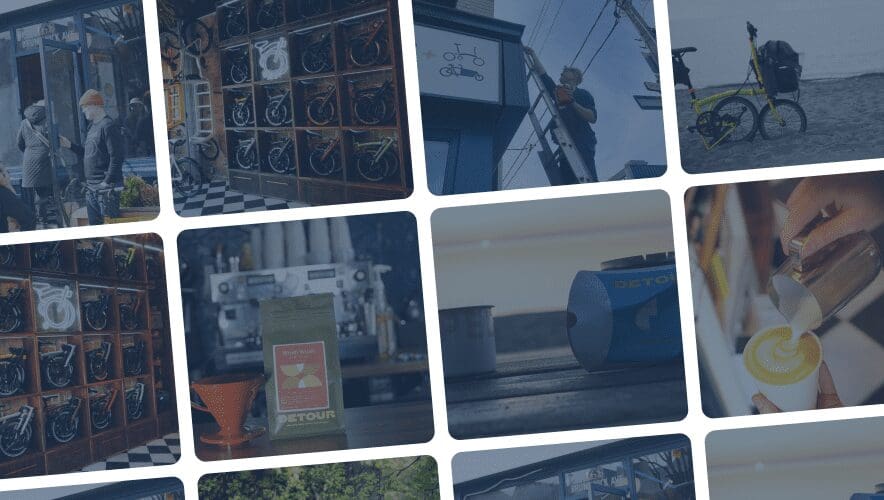“This combined bike and coffee shop is everything that’s good about Toronto.” That’s how Streets of Toronto begins their review of Pedaal, a few short months after Pedaal’s opening. Well, that certainly put an extra gust of wind in our sails! The article traces Pedaal’s development from our long history in the bike industry – both in Toronto and beyond Toronto – to this amazing new space. After three combined decades developing the market for city, cargo and folding bikes, Pedaal is all about (a) offering a welcoming space that opens even more conversations around city cycling, and (b) a precision approach to the bicycle brands who lead on the transportation-side of the market. We like to imagine that you might come in for a coffee but one day walk out with a bike. That could be the most transformational cup of coffee you’ve ever had!
Pedaal Your Heart Out!
So, why Pedaal? Why this name?
Pedaal – Dutch [noun] a lever worked by the foot, as on a bicycle, piano, organ etc.. [verb] to move (something) by means of pedals.
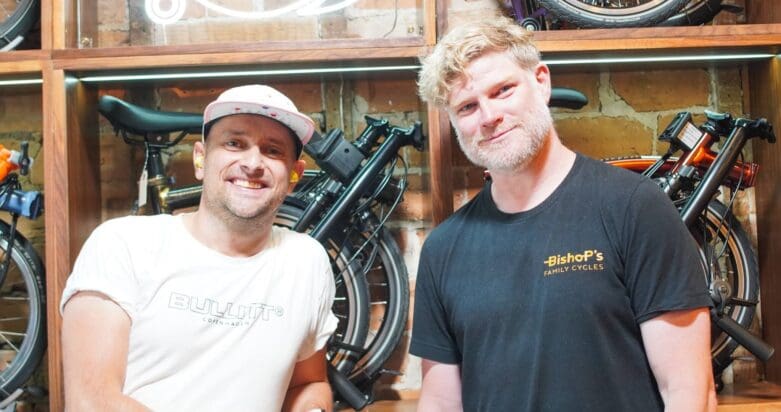
When we were pedalling through options, the name “Pedaal” kept wheeling back. There is something essential about pedals and a bike. A motorbike has two wheels, but you can’t pedal it. But a bicycle requires this act of leverage, this action of the body through the foot. Even a proper e-bike requires the act of pedalling as essential. Pedals are what keep the rider grounded; they are what moves the wheels underneath. Could we get philosophical? Dante called the right foot intellect (a type of power) and the left foot one’s will. Is it the same with the wheels? One wheel powers while the other steers? Either way, between the wheels and the feet, between driving and walking, your best leverage in the city is not the gas pedal but the bicycle pedal. That’s one thing we know for sure.
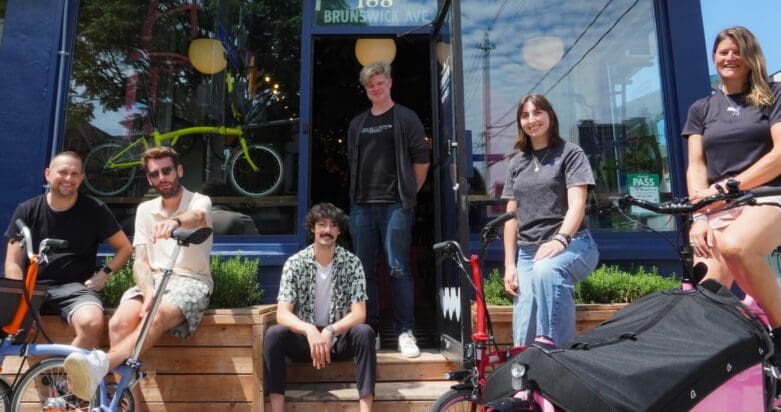
“Pedaal,” of course, is a Dutch word, and we like it because what we import, in a sense, is not just city bikes, but the value-systems that come with them. If you ride a bike lane on mountain bike you feel a bit out of place. But, if you ride on a city bikes that was manufactured in the cycling infrastructure of Northern Europe, you feel like you’re paving new bike lanes through the sheer act of riding. The proper bicycle, we believe, produces more riders, and more riders produces more infrastructure. Our path has taken us from importing these bikes to working closely with vendors to adapt these bikes to harsher weather, harsher roads, sprawling distances and greater topography. We had to really pedaal through the options, one might say. And that process of refinement is what Pedaal is all about.
Expressways of Gratitude
Above all, we’re happy to start our first location in the neighbourhood where we live and where we have been importing and selling bicycles for three combined decades. Harbord Village is historically a combination of stately maturity and progressive politics – the neighbourhood is famous for stopping the Spadina Expressway and for having Toronto’s busiest bicycle lane. In fact, the first event held at Pedaal was a book launch for local resident Albert Koehl, whose book Wheeling Through Toronto traces the many wins of Toronto’s bicyclists over time, especially stopping the Spadina Expressway.
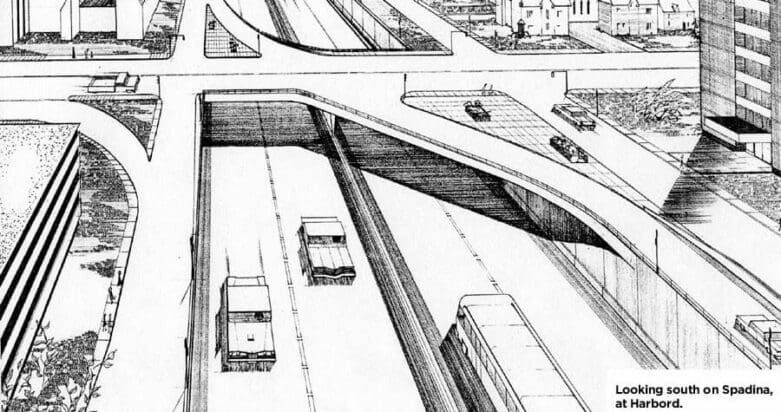
Truth is, there would be no bike lane outside our front door if it wasn’t for the hard work of the Harbord Village residents. Incidentally, it was Premier Davis who finally stopped the Spadina Expressway, saying “If we are building a transportation system to serve the automobile, the Spadina Expressway would be a good place to start. But if we are building a transportation system to serve the people, the Spadina Expressway would be a good place to stop.” Amen! At Pedaal, we operate in gratitude to the rabble-rousers of Harbord Village who defended our streets while laying the foundation for Toronto’s growing bicycle culture. We believe bicycles are a much better way to serve the people. (Well, a good cup of coffee is too!).
A Pedaaling Vocation
As the article traces, we were once the managing directors of Curbside Cycle, which we prefer to call our “previous vocation” – and, listen, we take the word vocation seriously! If “vocation” has something to do with listening to the universe – and we believe in such things! – then it is notable that Pedaal occupies the space of what was once our daily coffee shop. Indeed, when we saw our favourite coffee shop up for sale on Realtor.ca, we knew it was the universe calling. The space was perfect for displaying a small bike like Brompton; but the most exciting thing was forming an inclusive community space that opened more conversations around city cycling. In fact, the whole space invites conversation. In a world full of minimalist coffee shops that tend to build inclusivity through neutrality, we worked with artist Jessica Hiemstra to create a retail environment that is big on charm and downright maximalist. What other bike store has a tree on the roof or a bronze moose on the wall?!
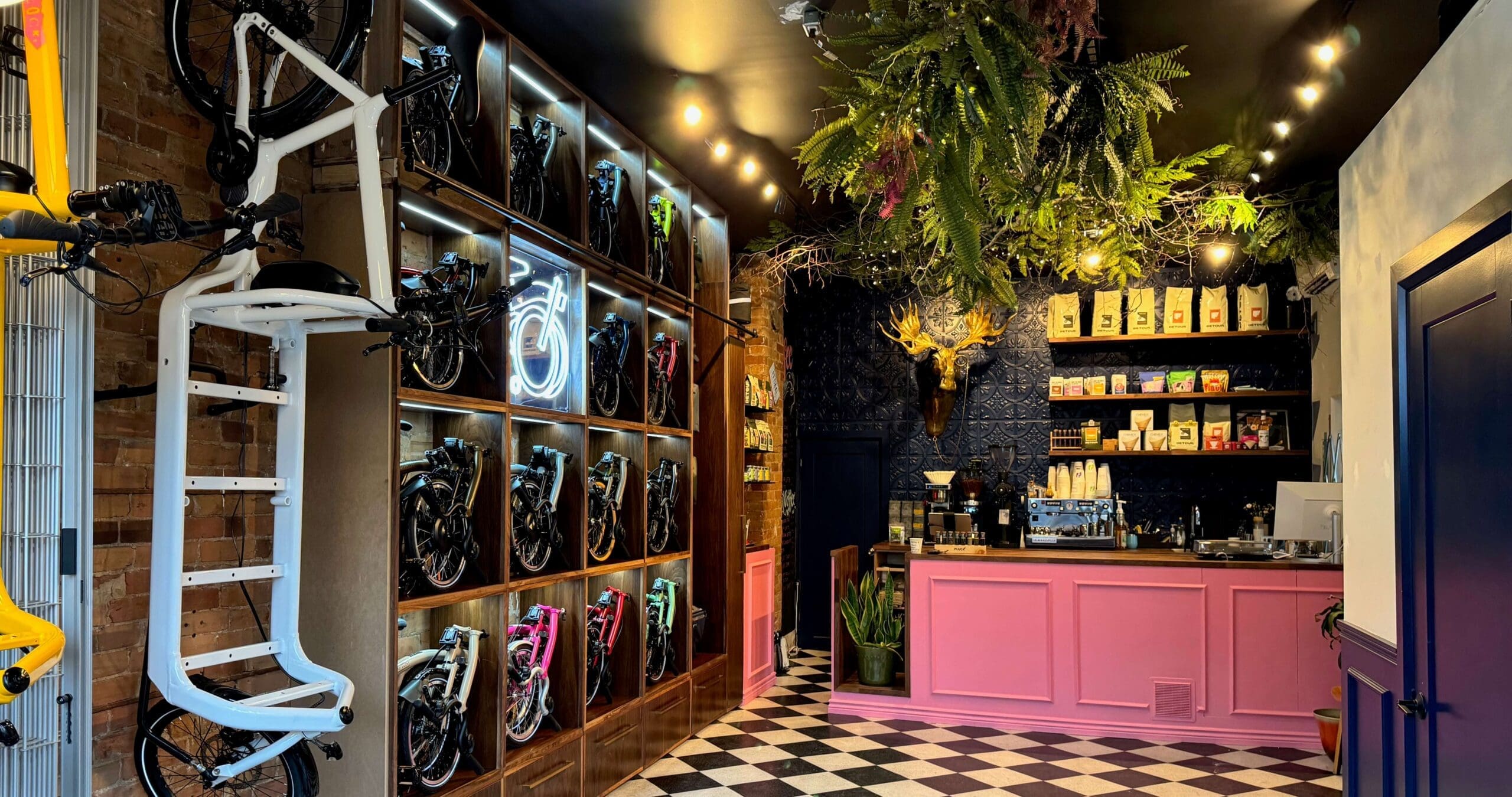
Now, in the past we can count many successes, including establishing the Canadian market for brands like Brompton, Bullitt, Black Iron Horse (and many, many others). But, our biggest success is that we broke the mold of traditional bicycle retail. We’ve been in the bicycle industry for a long time, and in previous shops we experienced something of the “boys club” mentality that pervades our industry. Historically, as bikes followed suburban expansion, the bicycle became a more and more rarified athletic product, aimed at men, and stripped of its potential for everyday transportation. This is unfortunate given how bicycles were radically inclusive when first devised, even essential to women’s emancipation (as traced by Evalyn Parry in her theatre production SPIN). Well, history is changing, and our goal is to help bring that emancipation back – for everyone!
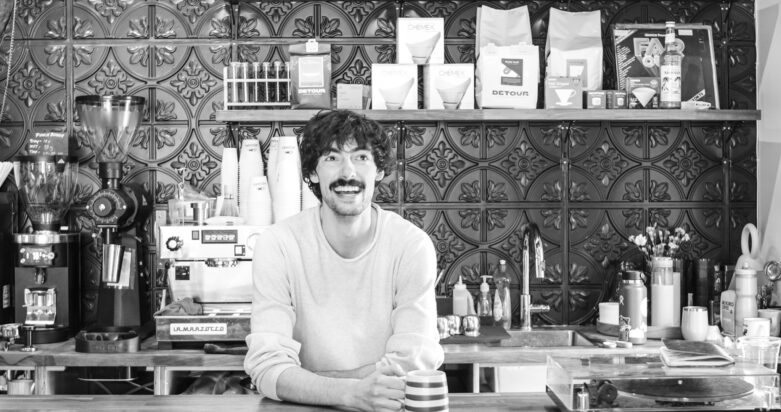
In our previous vocation, we created a store that began with inclusive products. And, this became the template for hiring a wide inclusion of staff. It was only this process that attracted a wide inclusion of customers. At Pedaal, we have taken this approach even further. Besides carrying highly inclusive products, we needed another product that could open up conversations about city cycling in the first place. And that product is a cup of a coffee. After all, we’re convinced that once you start riding in the city it will become as daily as your caffeine fix. And, if it’s hard to live without your daily coffee, it’s just as hard to live without your daily bike commute!
Pedaaling Ahead
Of course, many who know us ask why we left our previous vocation. After all, it was under our leadership that we transformed a used-bike store making about $500K a year to a $5.5M company. And, this success can be solely attributed to our leadership importing European city bikes into a virgin marketplace – no easy task! Over a combined thirty years we imported a wide array of brands, visiting Europe often, sussing out new vendors, and developing a nose for what is good, mediocre, or just plain bad. Through all of this we discovered city bicycles are highly regional artifacts. While the rest of the (recreational and performance) bike industry works towards a standardized, global vernacular, the city bike market tended to serve the countries they developed from. This helps explain, for instance, why the Dutch ride such heavy bikes. They simply don’t need a lighter one, so the question was never asked.
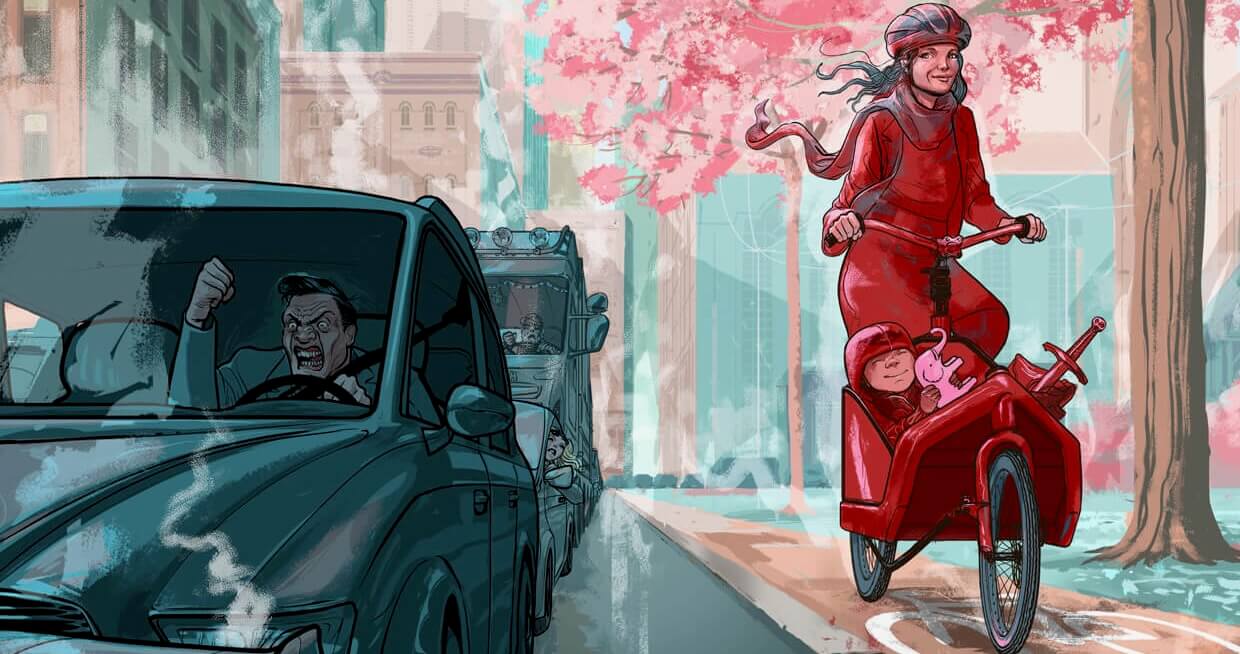
But, that simply doesn’t work in places where distances are longer or hills are higher. Companies who were leaders in their countries but who focussed efforts on producing a global solutions became our new benchmark. But, even today this isn’t easy to find. The global leaders who emerged in the transportation cycling market – and this has only happened quite recently – are the ones who are (1) established in their country of origin and, (2) interested in expansion and enthusiastic to adapt.
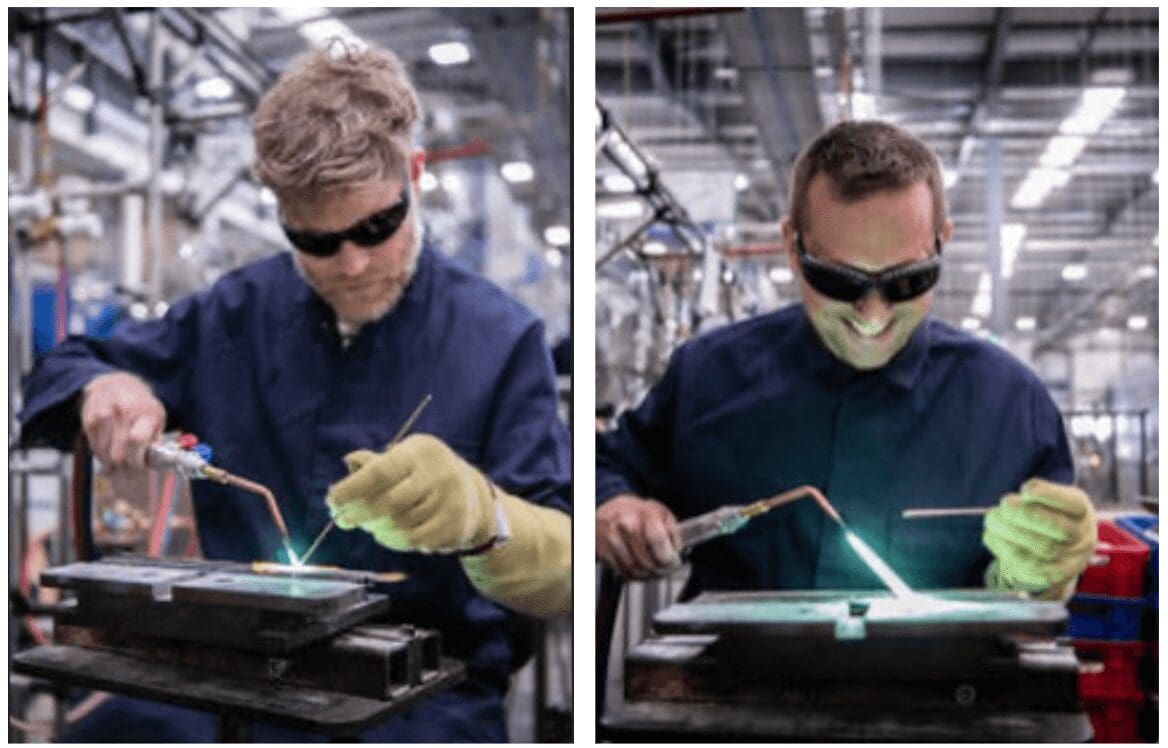
In our former vocation we incubated many brands who we thought might become global leaders but were established enough at home to not bother with the commitment. But, we also incubated many brands that did become global leaders. Pedaal was formed to focus on these leaders. That’s why Brompton, Bullitt and Black Iron Horse form the kernel of the Pedaal portfolio. No other bike can touch Brompton for its quality, folded size, ease of fold and handling. No other bike can touch Bullitt for it’s lightweight design or variability of seating positions. And, no other company can touch Black Iron Horse for its stability, handling and quality e-assists. These bikes expand your life and expand the possibility for wider social transformation. And, each company is wildly interesting (see, for instance, our blog about Brompton and the punks at Bullitt). You have to love working with revolutionary players who can laugh as hard as they work.
Pedaal Power
Perhaps the biggest reason why we started Pedaal was to expand city cycling. We mentioned that the bike industry tends to be stuck in a past era, one where cycling is located as a sport or hobby alongside other sports and hobbies. It’s long been a maxim that the hardest thing to change in a business is the company culture. This is true. Now imagine an entire industry! If you’re looking for a Bullitt cargo bike or Brompton folding bike at your local bike store, chances are very high that the store doesn’t carry them and even higher that the owners haven’t even heard of them. It’s quite tragic if the biggest bottleneck to creating more liveable cities by using bicycles is found with most bicycle stores!
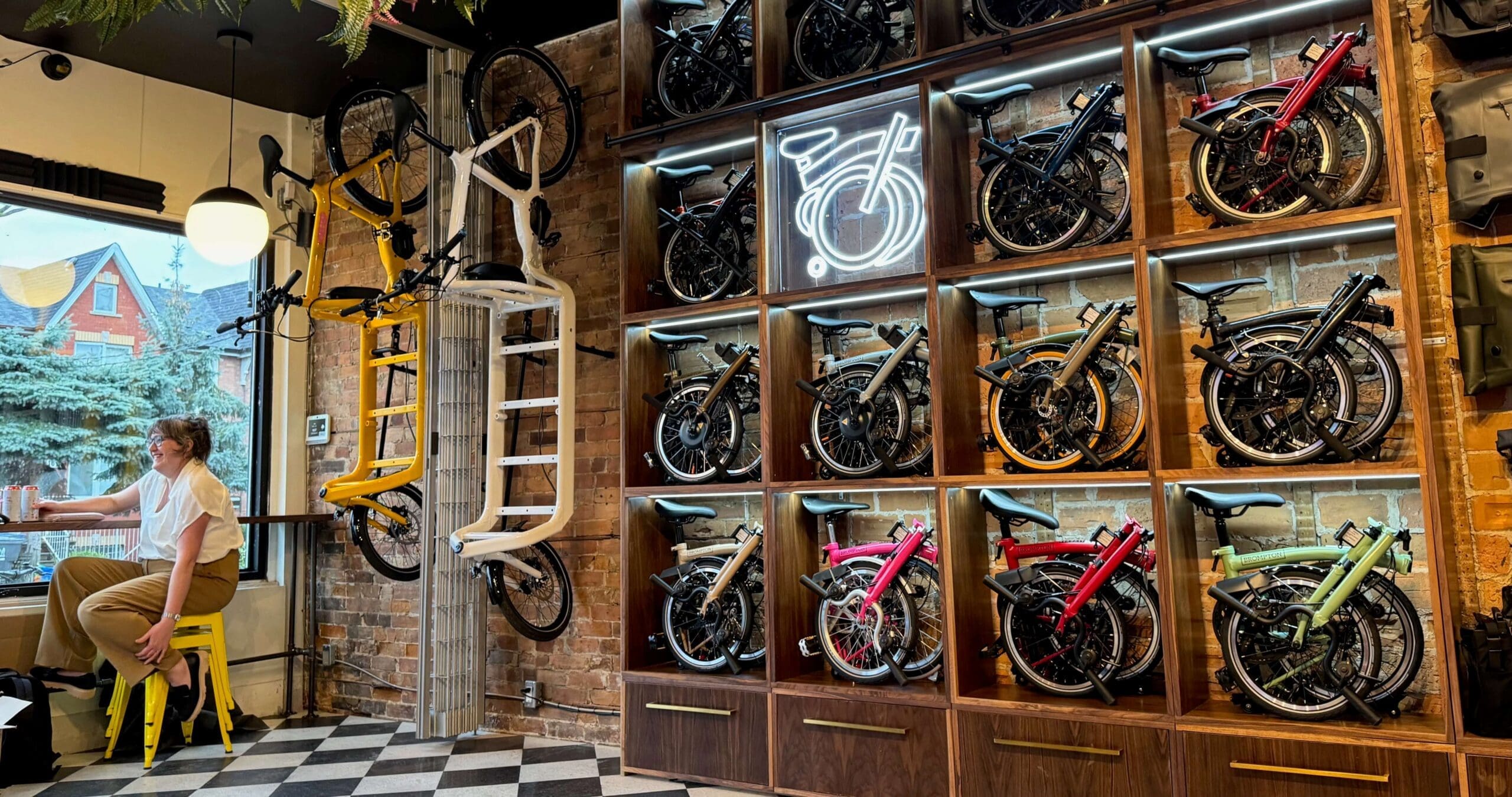
Our goal is to change this by expanding the Pedaal footprint to a neighbourhood near you. One thing we have on our side is the math. Consider this: your average Apple Store makes about $5500 per square foot, yet the average bike store only produces $179 per square foot. The disparity here is striking. The reason for this disparity ultimately comes down to warehousing. Most North American bike stores spend a great deal of their time trying to win large vendors like Trek, Giant or Specialized – the “Big Three” of the bicycle world. A retailer is often forced to buy 50% of all product from that vendor. The retailer selects a multiple of bicycle models where each model is further multiplied by (a) five to ten different sizes, and (b) and two or more colours. This is then further multiplied by model year. If a retailer hasn’t sold out of last years model they are still obliged to buy the same bike in this years model. All of this takes up space.
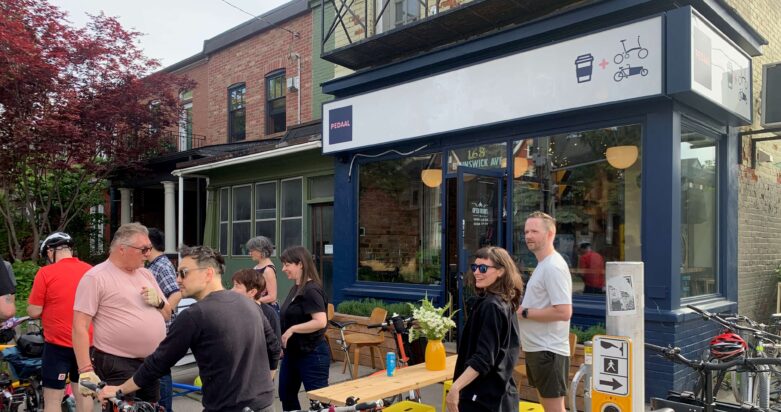
At Pedaal, we focus entirely on the transportation bike market. The transportation market lacks the need to constantly produce new model years to hold consumer attention. Improvements are made over time, as they should be, but model years generally don’t exist. All of this means that a Pedaal store can operate in 500 square feet and the coffee shop covers the overhead. Compare this to the average bike store, which is 5562 square feet, and this helps explain why the math is on our side. We would need our reader to sign an NDA to reveal the potential revenue per square foot, but we can tell you it’s pretty good (and that we’ll one day be looking for investors!). But dollars and cents aside, the Pedaal dream is to bring city bikes to people in cities. And, if that’s the call of the universe then Pedaal is our answer!

